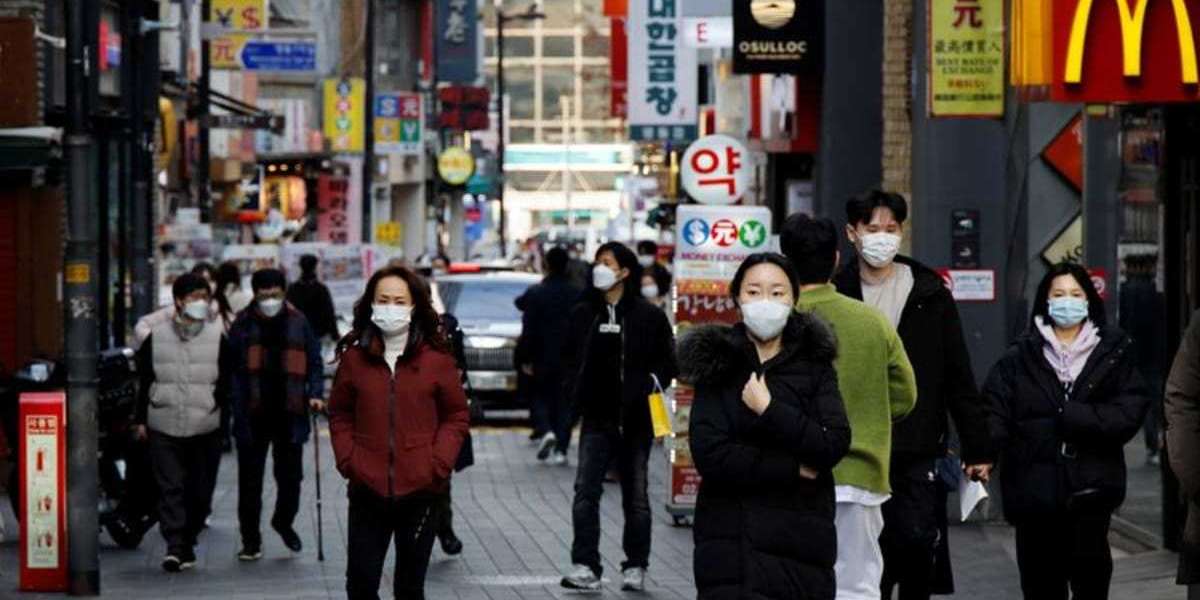Since its discovery in South Korea eight weeks ago, Omicron has risen to dominance throughout the country.
According to the Korea Disease Control and Prevention Agency, omicron has displaced delta as the dominant COVID-19 variant, accounting for slightly more than half of all sequenced positive samples in the previous seven days.
According to the latest metrics, the risk level for COVID-19 in Seoul and the rest of the country is "very high." 7,513 new cases were discovered in the previous 24 hours to Monday midnight, nearly doubling the 3,857 cases discovered a week ago during the same time period.
Following the discovery of an outbreak, the Ministry of Health and Welfare announced on Monday that it would be extending remote work to approximately one-third of its workforce. So far, at least 24 people have tested positive, two of whom were on COVID-19 response duty. The ministry stated that contact tracing is still ongoing.
There is a mixed message about the timing of gear shifts.
President Moon Jae-in, in a written briefing Monday afternoon, urged health officials to "make a swift switch toward the omicron strategy," which entails restricting access to health care resources to high-priority populations. However, the Health Ministry advises that it is best to test the waters before taking the plunge.
The omicron strategy deviates from the strict 3T (test, trace, and treat) regimen.
PCR testing is available to older adults in their 60s and older, as well as those who have had close contact with confirmed patients, while the rest of the population receives at-home rapid antigen tests. People will contact trace themselves through a smartphone app in the event of any exposure.
Son Young-rae, a spokesperson for the Health Ministry, told reporters in a closed-door briefing Monday morning that the omicron strategy "may jeopardize our ability to detect and manage patients."
"There are still a lot of preparations that need to be made before we can relax controls," he said.
"The transition point to the new strategy is still being discussed," he said. "We must take into account not only case rates, but also metrics such as intensive care bed occupancy and testing capacities."
"It's about focusing resources on people who are at higher risk," he says of the omicron strategy.
Hospitals will be able to withstand a greater surge.
According to a spokesperson for the Health Ministry, based on the previously dominant delta variant's hospitalization rates, the health system could handle around 14,000 cases per day without becoming overburdened.
While government models predict up to 20,000 cases per day by next month, Son claims that omicron's lower severity than delta will "allow hospitals to handle far more cases."
According to Son, the severity of omicron is estimated to be about one-fifth that of delta based on the information available so far.
Son stated that both testing and treatment capacities are currently "very high."
Thousands of beds for patients with varying degrees of COVID-19 severity have been added since the recent surge following the Nov. 1 reopening left hospitals scrambling, he said. According to the ministry's Jan. 19 count, hospitals across the country have a total of 2,047 ICU beds and 2,368 semi-ICU beds for COVID-19 patients.
Curbs will be used only as a "last resort."
Social distancing restrictions will be reinstated "only as a last resort," according to Son. He explained that because omicron is less severe than delta, hospitals will be given more space to deal with the impending surge.
According to him, the majority of patients will recover at home, with their medical needs being met at community clinics.
"Rather than hospitals, clinics will take center stage in the COVID-19 response, as they have in the past. We will be able to handle a greater number of patients as a result of this transition. "Our goal is to avoid tightening restrictions as much as possible," he explained.
Shorter quarantines and isolations
In addition to priority-based testing, which has already been implemented in areas of the country with high omicron rates, other changes are on the way as science on the disease evolves.
Because of the shorter incubation period of omicron, Korea is reducing the mandatory isolation period for patients with confirmed infection to seven days if they are vaccinated. Patients who have not been immunized, on the other hand, must be isolated for a full 10 days.
People who have been fully vaccinated and have had close contact with a patient are exempt from quarantine. Unvaccinated people will now be isolated for a minimum of seven days, rather than ten.
People who live in the same household as a patient recovering at home are quarantined for seven days if fully vaccinated, and 14 days if not.



